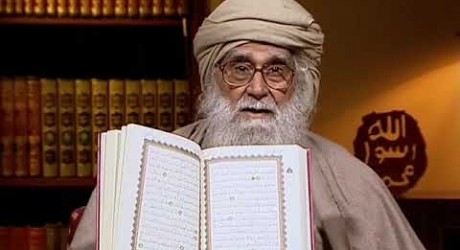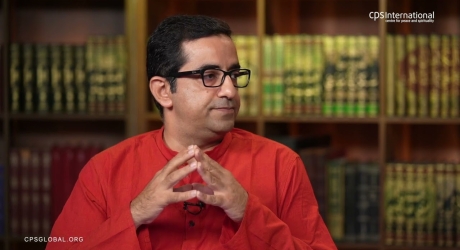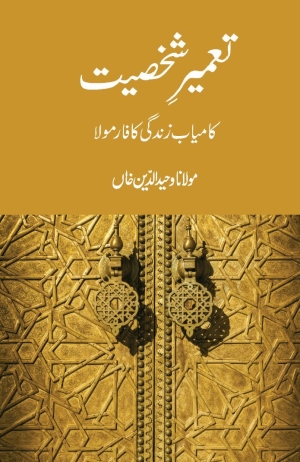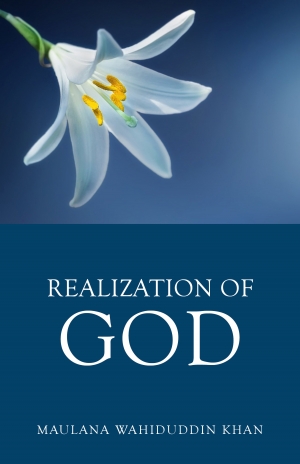When man consciously discovers God’s blessings, a deep feeling of love is produced in him for the Benefactor. This love manifests itself in the form of thanksgiving and worship.
Chapter 16 of the Quran has this to say: “And be thankful for the blessing of God, if it is Him you worship.” (16:114) Thanking God for all His blessings is no simple matter, for in this love of God is automatically included. Awareness of God’s blessings produces love in the believers. Then, man spontaneously gives voice to such words as are an acknowledgment of the divine blessings. It is praise (Shukr) to God. The bestowal of blessings produces emotions or feelings of love for the Benefactor, and this love is expressed in words of aacknowledgment It is what is meant by gratitude.
This reality has been expressed in a tradition of the Prophet: “That is, love God for all His blessings that He has given you.” (Sunan al-Tirmidhi, Hadith No. 3789)
In the original version of this tradition, the word provision is used in a symbolic sense to mean all the kinds of blessings that man has received from God, both material as well as spiritual.
On deeper thinking on this verse of the Quran and the tradition, we learn that the source of the feeling of our love for God is the awareness of how blessed we are. In the present world whatever man has received, whether great or small, has been received from God as a unilateral reward without there having been any contribution from us. The more one thinks of the state of oneself as well as that of the external world, the more one will discover the blessings of God.
Featured Articles
Featured Videos
FAQs
Gratitude means acknowledging the blessings of God. This acknowledgement has to be heartfelt, and only then does it take verbal form.
Human beings have been created with the best of bodies and the best of minds. All our requirements have been amply provided for. All the things of the earth and the heavens have been pressed into our service. All the things which we require to lead a life on earth or to build a civilization have been bestowed on us in abundance.
These blessings are showered upon an individual at all times. It is, therefore, incumbent upon him to repeatedly express his acknowledgement of God’s blessings. His heart should then overflow with the feeling of gratitude.
All forms of worship, are, in essence, manifestation of the feeling of that gratefulness, which is at the heart of a God-oriented life. Gratefulness itself is the most complete form of worship and relates to a person’s entire existence.
Initially, a person refreshes the feeling of gratitude in his heart and mind and then he expresses it repeatedly in verbal form. Subsequently, when these feelings of gratefulness intensify, he starts giving his wealth and his possessions in the path of God, as a way of expressing his thankfulness to Him. Moreover, his feeling of thankfulness compels him to spend his time and energy in the path of God. His whole existence is given to him by God. The world we live in is totally a divine gift. Another name for gratitude is acknowledgement or expression of this reality.
Source: The Spirit of Islam
Chapter 16 of the Quran has this to say: “And be thankful for the blessing of God, if it is Him you worship.” (16:114) Thanking God for all His blessings is no simple matter, for in this love of God is automatically included. Awareness of God’s blessings produces love in the believers.
Then, man spontaneously gives voice to such words as are an acknowledgement of the divine blessings. This is praise (Shukr) to God. The bestowal of blessings produces emotions or feelings of love for the Benefactor, and this love is expressed in words of acknowledgement. This is what is meant by gratitude.
This reality has been expressed in a tradition of the Prophet: “That is, love God for all His blessings that He has given you.” (Sunan al-Tirmidhi, Hadith No. 3789)
In the original version of this tradition, the word provision is used in a symbolic sense to mean all the kinds of blessings which man has received from God, both material as well as spiritual. On deeper thinking on this verse of the Quran and the tradition, we learn that the source of the feeling of our love for God, is the awareness of how blessed we are. In the present world whatever man has received, whether great or small, has been received from God as a unilateral reward without there having been any contribution from us. The more one thinks of the state of oneself as well as that of the external world, the more one will discover the blessings of God.
When man consciously discovers divine blessings, the natural result is that a deep feeling of love is produced in him for the Benefactor. It is this love which manifests itself in the form of thanksgiving and worship.
Source: Love of God
The very first verse of the Quran reads: “All praise is due to God, the Lord of the Universe.” (1:2)
This verse shows the importance of gratitude. The truth is that of all the acts of Islam, gratitude is the only act which a person can perform in its highest ideal form. But for various reasons in other spheres such as worship, ethics, social dealings, and so on, man’s performance falls short of the ideal. The performance of the ‘worship’ of gratitude relates, however, to the heart and mind, and as such, it is possible for a person to perform it in its ideal form. In gratitude, he can offer all his best feelings, all his best thoughts to God. Such perfection can be expressed solely as a matter of gratitude.
What is gratitude? Gratitude is, in fact, another name for acknowledgement. What is called acknowledgement in human matters is called gratefulness in the matter of God. It is essential for every person to awaken his or her consciousness to such a high level that everything he or she possesses should be seen as God’s gift in the full sense. One may then in total gratitude utter the words: “Praise be to God.” With full consciousness of God’s blessings and mercy, one may utter the words: “Praise be to God, Lord of the worlds.”
This is true thanksgiving and there is no doubt about it that thanksgiving is the noblest form of worship.
In the present world, what is called life support system exists on a large scale. Here everything is created in such a way that in the total sense, it is favourable to a human being. The whole world is a custom-made world. Given this situation, when a person is free to live in this world and utilize its resources, he should be filled with feelings of gratefulness and acknowledgement: a person, it should be borne in mind, has received all the precious things of this world free of cost. True thankfulness is the price we have to pay for all these things. Those who do not pay this price are like usurpers in this world. Living in this world without this feeling of gratefulness is an unpardonable sin, for both men and women.
Source: Discovering God
There are so many amazing phenomena in the universe. For instance the stars, the planets, the oceans, the mountains, etc. All these things are the creation of God. They all acknowledge God, but this is compulsory acknowledgement; it is not by choice.
Exceptionally, God has created man as a free creature. Man is required to acknowledge his God by his own choice. He should stand on the planet Earth and say: “O God! I believe in Your existence without seeing You, and O God! I surrender myself before You without any compulsion. O God! I admit my helplessness in the face of Your power.” That is the acknowledgement expected from a human being, on the basis of which all blessings have been bestowed in advance. Those who measure up to this acknowledgement will find that these blessings will continue to increase for them, but those who failed to acknowledge these blessings will be deprived of them forever.
Source: Discovering God









